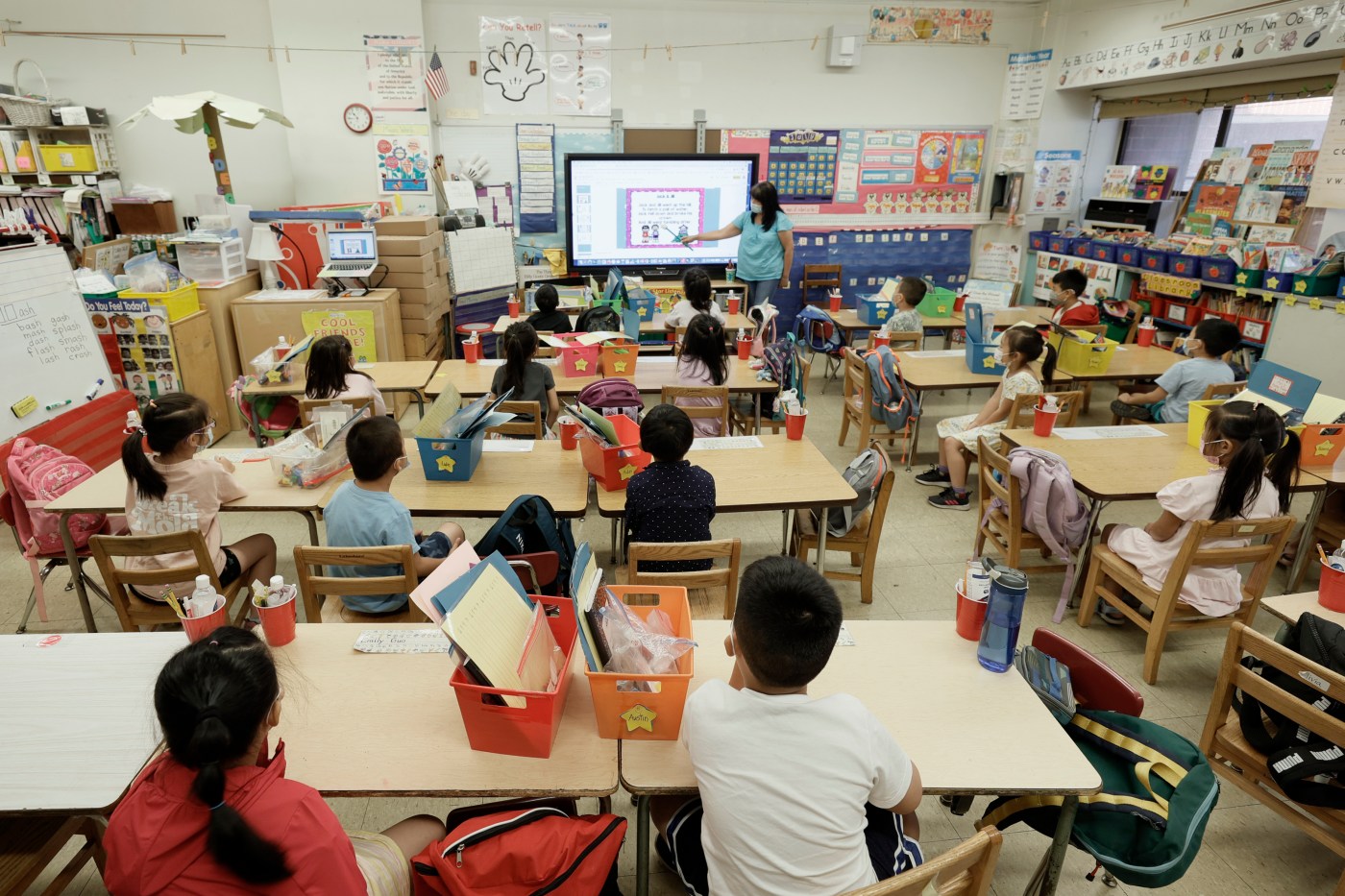Politics
NYC Mayoral Candidates Urged to Prioritize Education in Debate

The upcoming mayoral debate in New York City will spotlight the candidates’ plans for addressing education, a critical issue that has received less attention amidst discussions of affordability. With nearly one million students enrolled in public schools, the future of education in the city is essential not just for individual success but for the overall well-being of the community.
As the city grapples with a changing economy, the candidates need to clarify how they will prepare students for a workforce increasingly influenced by technology. Recent reports from the New York Office of Management and Budget indicate that the city is experiencing its slowest job growth in the first seven months of a year since 1995. This slowdown is coupled with the rise of artificial intelligence (AI) across multiple sectors, such as logistics, healthcare, and finance, which further complicates the job market for recent graduates.
Currently, the unemployment rate for recent college graduates stands at 5.3%, compared to an overall rate of 4%, according to the New York Federal Reserve. This challenging climate underscores the urgency for mayoral candidates to articulate their visions for educational reform. It is crucial that the next mayor recognizes education as a driver of public good, shaping the workforce and enhancing the quality of life in neighborhoods throughout the city.
Strong educational systems contribute significantly to community stability and civic health. To address the evolving demands of the job market, New York City public schools have begun forming cross-sector partnerships that offer students exposure to high-demand industries. Initiatives such as these aim to bridge the gap between classroom learning and real-world employment opportunities.
At Teachers College, Columbia University, future educators gain practical experience by working in pre-K to 12 classrooms, equipping them with the skills necessary for nurturing the next generation. Despite these efforts, candidates have yet to present a unified approach that connects proposed policies—ranging from early-childhood education to vocational training—with tangible pathways from education to employment.
Many schools continue to face significant hurdles, including pandemic-related learning loss and chronic absenteeism. The shortage of counselors, social workers, bilingual educators, and special education staff further exacerbates these issues, leaving many students without essential support. Additionally, outdated facilities and limited access to technology remain prevalent in various neighborhoods.
Differences in governance proposals reflect the candidates’ varied approaches to these challenges. Andrew Cuomo advocates for maintaining mayoral control of schools, while Curtis Sliwa calls for new oversight, and Zohran Mamdani proposes decentralizing authority. Ultimately, the focus should not solely be on governance structures but rather on achieving better educational outcomes for students.
New Yorkers should demand clarity from each candidate regarding how their governance strategies will ensure that necessary resources and reforms effectively reach classrooms. No policy can succeed without substantial investment in the educators and staff responsible for implementing it.
At Teachers College, the commitment to preparing the next generation of educators is evident. However, the effectiveness of their training hinges on the level of support they receive once they enter schools. Educators are now tasked with integrating AI into their teaching methods, addressing increasing mental health needs, and supporting multilingual classrooms—all while facing shortages of essential personnel.
The candidates have acknowledged the importance of educators, yet none have articulated a cohesive vision for recruiting, preparing, and retaining teaching staff. As discussions continue about education, governance, and economic factors, it is clear that education must remain central to the conversation.
The decisions made by the next mayor regarding educational policy will play a pivotal role in determining whether New York City can maintain its competitive edge, foster livable neighborhoods, and prepare its youth for future challenges. As the debate unfolds, voters should seek comprehensive answers: How will candidates connect classrooms to careers? What resources will be allocated to schools? How will educators receive the necessary support?
These questions are fundamental, not peripheral issues. Education is a vital link between opportunity and progress, laying the groundwork for shared prosperity. Keeping education at the forefront will ensure that New York remains a place where every child has the chance to learn, grow, and thrive.
-

 Science1 month ago
Science1 month agoOhio State Study Uncovers Brain Connectivity and Function Links
-

 Politics2 months ago
Politics2 months agoHamas Chief Stresses Disarmament Tied to Occupation’s End
-

 Science1 month ago
Science1 month agoUniversity of Hawaiʻi Joins $25.6M AI Project for Disaster Monitoring
-

 Entertainment1 month ago
Entertainment1 month agoMegan Thee Stallion Exposes Alleged Online Attack by Bots
-

 Science4 weeks ago
Science4 weeks agoALMA Discovers Companion Orbiting Giant Star π 1 Gruis
-

 Science2 months ago
Science2 months agoResearchers Challenge 200-Year-Old Physics Principle with Atomic Engines
-

 Entertainment1 month ago
Entertainment1 month agoPaloma Elsesser Shines at LA Event with Iconic Slicked-Back Bun
-

 World1 month ago
World1 month agoFDA Unveils Plan to Cut Drug Prices and Boost Biosimilars
-

 Business1 month ago
Business1 month agoMotley Fool Wealth Management Reduces Medtronic Holdings by 14.7%
-

 Top Stories2 months ago
Top Stories2 months agoFederal Agents Detain Driver in Addison; Protests Erupt Immediately
-

 Entertainment1 month ago
Entertainment1 month agoBeloved Artist and Community Leader Gloria Rosencrants Passes Away
-

 Science2 months ago
Science2 months agoInnovator Captures Light at 2 Billion Frames Per Second







